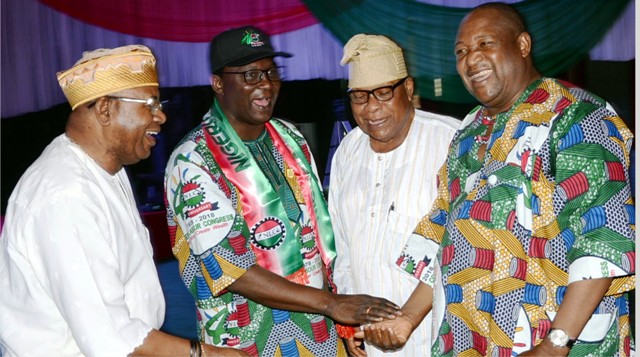Business
Group Tasks Firms On Renewable Energy

A Non Governmental Organisation, the Environmental Rights Action/Friends of the Earth, Nigeria (ERA/FoEN) has urged energy firms operating in the Niger Delta region to intensify research efforts into renewable and non-fossil fuels.
Head of Field Operations at ERA/FoEN, Mr Alagoa Morris, made the call in Yenagoa while speaking to newsmen.
Morris said there was the need to diversify the nation’s energy mix and reduce the emphasis on oil and gas prospecting due to their adverse effects on the ecosystem.
He frowned at indiscriminate seismic activities by oil firms in the residential area in Yenagoa.
This has been ongoing in Yenagoa in the past two months.
ERA/FoEN, in a reaction to the development, noted that the aggressive search for oil in residential areas was ill-advised.
According to Morris, the present convention is to develop alternative energy sources that are environmentally friendly.
The group said the sound of explosives creates panic among residents and wondered why there was no sensitization to enlighten residents and assure them of safety.
He said some residents, who expressed their concerns on the oil exploration activities told the NGO that seismic cables traversed their houses and often disrupted their social and economic activities.
Hear him “the residents express fears that if oil was struck, they may be compelled to relocate. Some residents, however, expressed optimism that if crude oil/gas is found on their land, it would bring fortune to them.
“ERA/FoEN: a Non- Governmental OrganiSation observed that the seismic cables were laid at the doorsteps of some residences, shops/business environment, roadsides and even in the middle of roads in Yenagoa.
“It is unimaginable that while the world is progressively shifting away from fossil energy, to developing renewable energy; the Federal Government and Shell are still exploring crude oil and gas.
“The explosives detonated during the search for oil was responsible for the earth tremor incidents reported by ERA last year.’’
He urged the federal government and oil firms to leave the oil/gas in the soil and go for the renewable sources of energy.
This advice, he said became necessary, considering the social and environmental conflicts and injustices associated with fossil energy.
“Government should protect the rights of Nigerians to live and go about their businesses in an environment conducive to their development in line with Article 24 of African Charter on Human and People’s Right.
Business
Two Federal Agencies Enter Pack On Expansion, Sustainable Electricity In Niger Delta

Business
Why The AI Boom May Extend The Reign Of Natural Gas

Business
Ogun To Join Oil-Producing States ……..As NNPCL Kicks Off Commercial Oil Production At Eba

-

 Sports3 days ago
Sports3 days ago2026 WC: Nigeria, DR Congo Awaits FIFA Verdict Today
-

 Environment3 days ago
Environment3 days agoOxfam, partners celebrate 5 years of climate governance programmes in Nigeria
-
Politics3 days ago
ADC, PDP, LP Missing As INEC Set For By- Elections In Rivers
-
Politics3 days ago
FG’s Economic Policies Not Working – APC Chieftain
-

 Politics3 days ago
Politics3 days ago2027: Diri Unveils RHA LG Coordinators, APC Congress Panel
-

 Politics3 days ago
Politics3 days agoReps To Meet,’Morrow Over INEC’s 2027 Election Timetable
-

 Politics3 days ago
Politics3 days agoGroup Continues Push For Real Time Election Results Transmission
-
Sports3 days ago
Sunderland Overcome Oxford Challenge

